Are you a manager who serves as a performance coach for your team? If so, then you know how critical it is to provide feedback that is both constructive and positive. Performance reviews are meant to help employees learn from their mistakes and grow into more effective contributors. But sometimes, it can be challenging to maintain the right balance. Here is a guide to help you give proper employee performance reviews. Follow the tips provided and you’ll be able to deliver feedback that is both beneficial and inspiring for your team.
The importance of employee performance reviews
Performance reviews are an invaluable tool when it comes to growing an employee’s performance and empowering them in their job. Not only do performance reviews provide insight into how well or poorly an employee is doing, but they also give managers and companies the opportunity to focus on developing areas that need improvement through performance coaching.
Performance coach programs can provide employees with clear feedback, guidance, and techniques for improving performance, and the support of a performance review for assessing performance can help make sure those improvements stick. In fact, performance reviews can be a great way to show your staff how much you care about their growth and development!
How to give a proper performance review step by step
Performance reviews don’t have to be dreaded encounters. With the right preparation and advice from a performance coach, these decisions can become efficient, meaningful conversations with employees. The steps to take are simple:
First, decide what type of performance review is going to be conducted, whether it be formal or informal.
Next, make a list of topics to discuss and evaluate in the performance review.
After that, determine goals for the performance improvement in the upcoming period.
Finally, schedule time to meet with the employee and discuss performance in a positive manner so they know what’s expected and can act accordingly during the next performance evaluation.
Performance reviews should always end on a positive note with both parties feeling satisfied with the conversation!
If you want to give performance reviews that make your employees feel valued and motivated, following a few helpful tips can make the process easier.
- Be sure to come prepared with a performance coach to ensure that both parties are focused and on the same page.
- Strive to deliver constructive and specific feedback in a cheerful tone.
- Support any negative comments with an undeniable fact or statistic to prevent them from coming off as overly harsh.
- Don’t forget to praise performance and hard work when it has been achieved; workplace morale will improve significantly if your employees feel recognized for their efforts.
Following these simple tips when writing performance reviews will make sure that every employee feels heard and empowered!
What to include in a performance review
Performance reviews are an important part of employee performance and should be done in a structured, professional manner. A performance review not only allows employers to evaluate performance but also acts as a performance coach.
The most efficient performance reviews generally include a review of job expectations, evaluation of the employee’s day-to-day output, setting goals and objectives for the future, as well as open dialogue between both parties.
It is important to create an atmosphere of trust and positivity during the review to ensure candor from the employee about what is working well and areas that need improvement.
Applying a cheerful attitude towards this important task can help ensure your organization puts in place effective practices that will better its performance year after year.
Traditional Vs. Modern Performance Review
Businesses have come a long way in the employee review process! Traditional performance reviews used to be a rigorous and sometimes frightening process; one dreaded by both employer and employee alike. But modern reviews are much more friendly, interactive, and encouraging.
It’s no longer all about the negatives; instead of solely discussing where an employee can improve, employers can also discuss what they’re excelling at and where they should continue to focus their talents.
Additionally, feedback is bidirectional with modern reviews so employees can provide input on what would help them do their job better. Investing in employees has never been easier or more stimulating – everyone receives a win-win situation!
5 Tips to Give a Proper Employee Performance Review
The employee performance review is an integral part of the evaluation process, allowing employers to assess and provide feedback on their employees’ successes and areas for improvement. Here are five tips to give a proper review.
- First, be sure to keep up with the employee’s progress all year – regular checkpoint meetings ensure that their goals are being met.
- Second, maintain a positive (but honest) tone throughout the review.
- Third, focus on what the employee has achieved rather than focusing on individual mistakes – be sure to give constructive feedback and explain how it can help them grow professionally.
- Fourth, provide advice for tangible next steps that will help reach goals faster in the future.
- Finally, end each performance review on an upbeat note of encouragement!
With these five tips in hand, you can ensure your reviews are congenial while fulfilling their goal of providing meaningful feedback.
The benefits of giving regular performance reviews
Performance reviews can be a great way for performance coaches to assess the progress and performance of their clients. They provide performance coaches with a meaningful, unique opportunity to offer acknowledgment and recognition for accomplishments, and continuously provide support for further achievement.
With efforts centered around providing performance feedback that is both instructive and motivating, performance reviews also allow performance coaches to gain valuable insights into the inner workings of their client’s performance, allowing them to give targeted guidance where needed.
All-in-all, performance reviews are a great resource that can help performance coaches put their clients in the best possible position to reach their goals successfully. They are an important part of the workplace and can help to improve employee productivity as well as identify areas that need improvement.
If you follow the tips we’ve provided, you’ll be able to give a performance review that is both positive and helpful for your employees. Regular performance reviews also have many benefits, so don’t neglect this essential task!
Get in touch with us
Related Posts

How to Measure and Improve Business Performance

The Biggest Leadership Mistakes That Affect Employee Performance
About Us

Our passion is helping your leaders coach your teams to achieve organizational performance. 50 years combined business improvement expertise.

